World of Warcraft can be an intimidating game to get into or be equally confusing for a returning player. There is a lot to get your head around, and you might need some help getting to grips with the game.
There are multiple systems, mechanics, and various elements of gameplay to learn and understand, tons of content to play, and multiple choices you must make before getting into the game. To help make that expereince smooth and get you into the game quickly and comfortably, We’ve prepared this guide that aims to be your helpful companion as you jump into WoW.
Related: Everything We Know About World of Warcraft’s Worldsoul Saga Expansions
Play The Trial First, It’s Free!
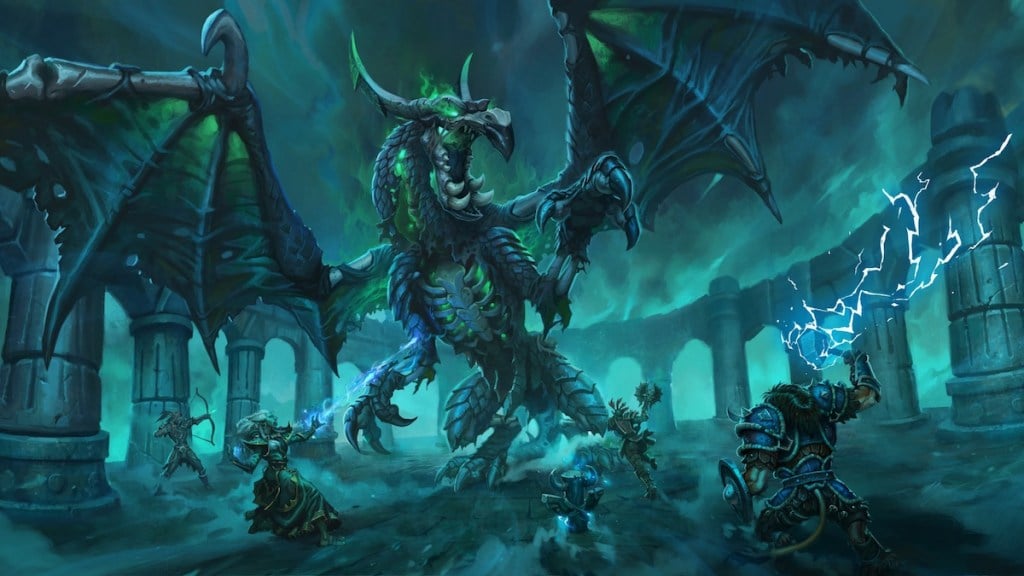
First, a game like World of Warcraft isn’t for everyone, and spending your money to find out you don’t enjoy the game is the last thing you want. Thankfully, WoW offers a comprehensive free trial that gives you the chance to try and enjoy a good chunk of the game for free.
In the free trial, you can play the game up until level 20 with as many characters as you want, so you can try out different races and classes. Additionally, you can earn up to 1000 gold per character and use the Say and Party chat functions to interact with other players.
That said, there are quite a few restrictions, such as being unable to use mail, the auction house, form a party yourself, do pet battles, or use guild-related functions. But during a trial to see if you like the game, this shouldn’t be an issue. It’s also worth noting that you cannot access the Classic servers during the trial.
Getting Started
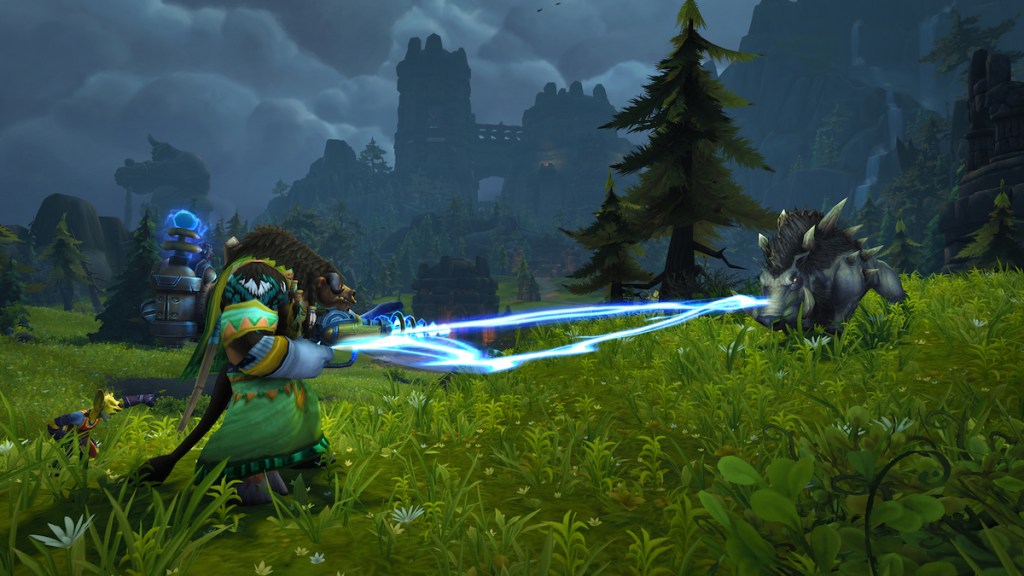
If and when you decide to jump into the world (of Warcraft), you will first need to do a few things before jumping into the game, with the main one being to choose a realm, your faction, race, and class. We’ll break these down in order and give you the details below.
Realm
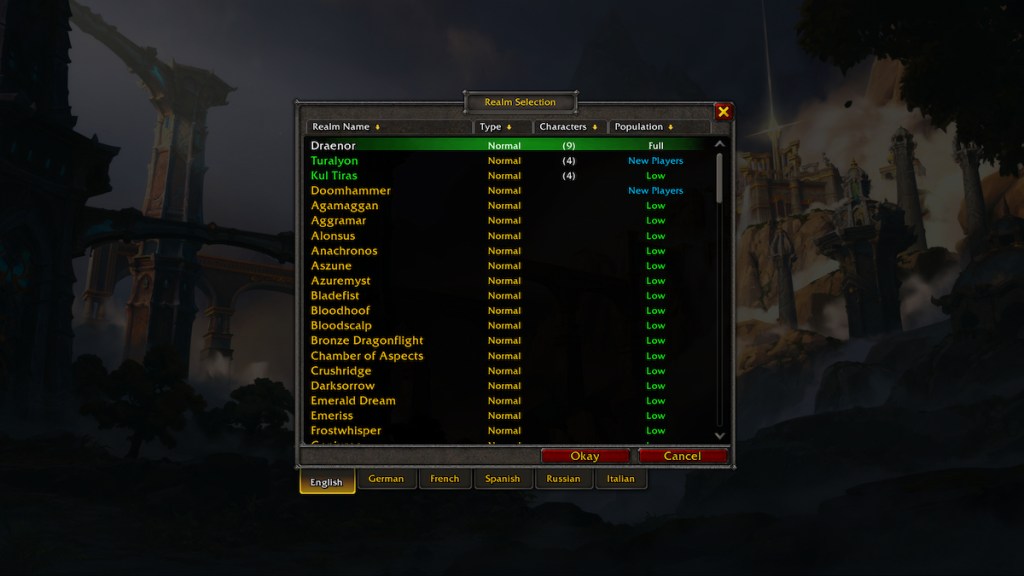
First, when you first log into the game, you must choose a realm. This is where your character will live and can determine the primary language spoken in that realm, the time zone, and some aspects of gameplay, as well as a way for the developers to manage the game population.
For Retail, you have Normal realms and RP realms. Normal realms are your standard and will allow you to party up with friends and players from other realms of the same region. You can also turn on War Mode, which allows for open-world PvP, where you can engage in combat with opposing faction players.
RP realms are roleplay realms where players choose to enjoy the game “in character” to add to the game’s atmosphere. They are not different from normal realms other than this element.
Related: WoW Chromie Time Explained – How Leveling Up Works in WoW
If you are fresh to the game, picking a normal realm is a safe bet, but whatever you fancy is the one you should choose. Plus, Retail allows players to connect and play regardless of the realm now, so don’t worry if you pick one different from your friends; you can still play together!
Faction
Next, it’s time to pick your faction, a group of races bound together by common goals and ideals. These two sides have been at war, united to face a common enemy, and everything between, and both have a few differences to consider.
You have the Alliance, built and driven by traditions, justice, and righteousness, whose capital city is Stormwind. The other faction is the Horde, who are driven by a sense of unity and believe in freedom and honor above all else, with their capital city being Orgrimmar.
Related: WoW Chromie Time Explained – How Leveling Up Works in WoW
The main difference is the races you will be able to pick and play, as well as some story elements found in the game, with different NPCd to interact with, or in a few cases, separate areas you can play through. Each has its own aesthetic, lore, and characters, and ultimately, it’s down to personal preference which you choose to align with. Though not to be biased, I am a Horde boy and always will be.
Race
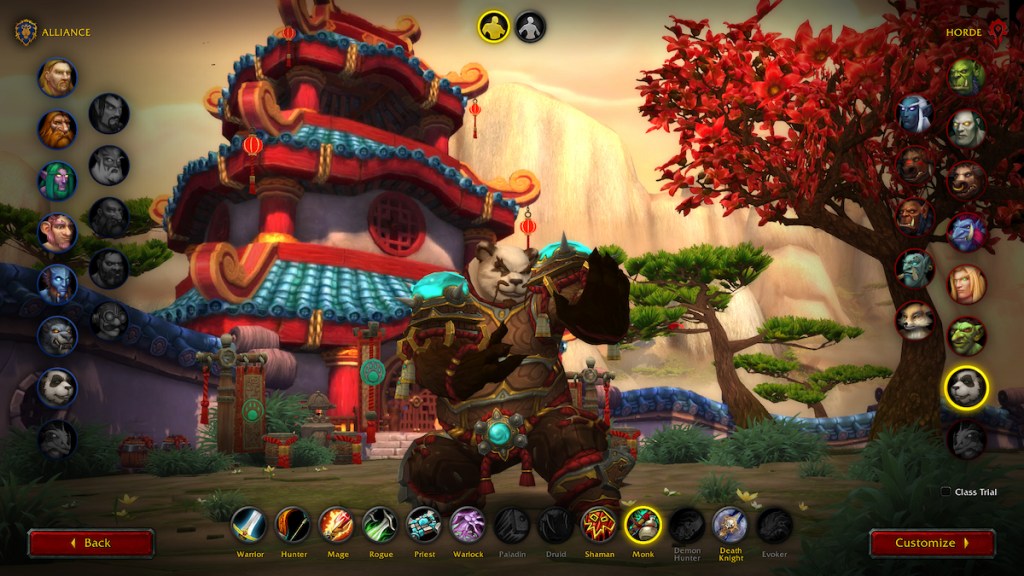
Another factor in choosing your faction, and how you expereince the game as a whole, is your race. Each faction has multiple races, with several Allied Races unlocked by completing specific requirements, like getting a reputation with a faction or completing certain storylines.
For the Alliance, you have the following races:
- Humans
- Dwarf
- Night Elf
- Gnome
- Draenei
- Worgen
- Kul Tiran (Allied Race)
- Dark Iron Dwarf (Allied Race)
- Void Elf (Allied Races)
- Mechagnome (Allied Race)
- Lightforged Draenei (Allied Race)
For the Horde, you have the following races:
- Orc
- Undead
- Tauren
- Troll
- Blood Elf
- Goblin
- Mag’har Orc (Allied Race)
- Nightborne (Allied Race)
- Highmountain Tauren (Allied Race)
- Zandalari Troll (Allied Race)
- Vulpera (Allied Race)
You also have two races available for the Alliance and Horde, the Pandaren and the Dracthyr. These two can be played on either faction with no difference to gameplay, only the features like storylines and areas aligned with the faction you choose to play them on.
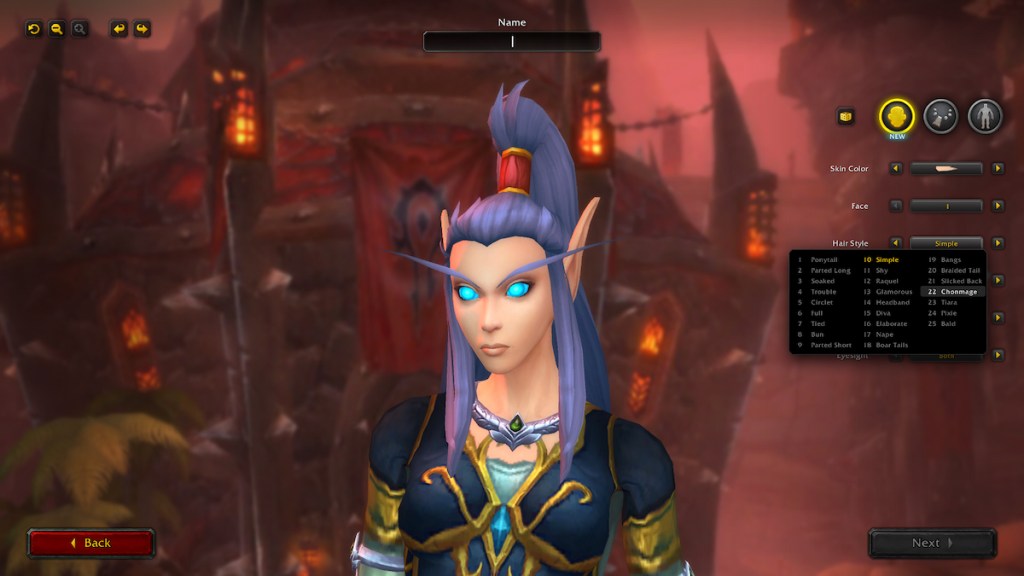
Races all have several traits that give them some additional, yet rather minute benefits, such as increasing attack speed, gaining more reputation, an extra ability, or utility like summoning their own mailbox. All of these have uses and are cool extra bits of flavor to your character, but they shouldn’t be the deciding factor in your choice.
Like factions, this is a personal preference. Choose whatever race you think looks and sounds cool to you, since you will be with them for a long time.
Class
Now, we get to the most significant and most challenging decision: your class. This will determine what kind of role you will play in groups and what kind of playstyle you will have. There are a lot of options and ways to refine these, so it can be an intimidating prospect. Luckily, we can walk you through the main points you need to know.
First, think about what you want to do and what role you want to fill. Do you want to be the tank and protect the party, the DPS, and lay down the hurt, or a healer to support and sustain your party through encounters? Thankfully, a good amount of classes in WoW will allow you to fill multiple roles, so you can always have a little freedom to change things up if you want to.
Related: Will World of Warcraft Come to Xbox Consoles?
Additionally, a few classes are known as hero classes, which start at a higher level than other classes and have some unique starting zones that fit the expansion they were introduced.
Below, we’ve listed all the games classes and their respective roles:
- Warrior (Tank, DPS)
- Paladin (Tank, DPS, Healer)
- Hunter (DPS)
- Rogue (DPS)
- Shaman (DPS, Healer)
- Mage (DPS)
- Warlock (DPS)
- Monk (Tank, DPS, Healer)
- Druid (Tank, DPS, Healer)
- Demon Hunter (Tank, DPS) – Hero Class
- Death Knight (Tank, DPS) – Hero Class
- Evoker (DPS, Healer) – Hero Class. This is a limited class that can only be played by Dracthyr.
Once you pick your class and begin, you are locked into that class with that character, meaning you must create a new character to play a different class. This is why you will hear players talk about alternate (alt) characters, which act as secondary characters they can play for a different expereince. What’s more, the upcoming expansion, The War Within, will add features to share resources across all your characters more easily, so having an alt will be much easier and encouraged.
Our advice is to pick what class sounds and looks cool to you and fills the role(s) you want to try and play. It’s very easy to level up in WoW, so you shouldn’t be discouraged from trying a few and seeing what takes your fancy. For me, I love to tank and play a Death Knight with a Hunter as my alt, and it’s been a blast. Play what and how you want; the game is more fun that way!
What Will You Be Doing?
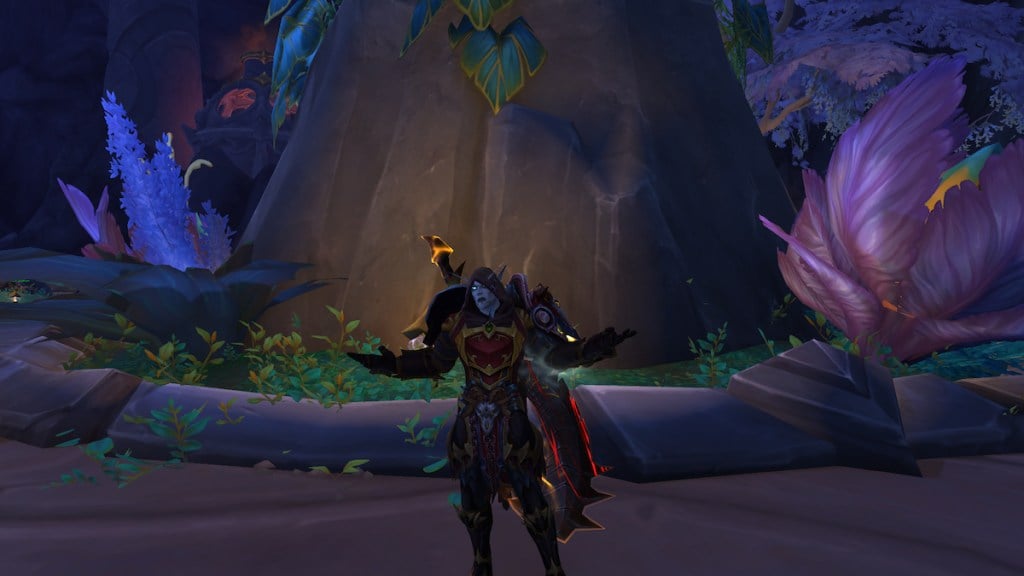
Ok, you have chosen your faction, picked a race, and decided on your class; now it’s time to jump into the Azeroth and play. But, what do you actually do in WoW? Well, you gain EXP and level up!
Your character will start at level 1 (or slightly higher for hero classes). As you complete content, you’ll earn exp, level up, and begin to unlock more content and gear to improve your character, eventually reaching the top level, which is currently 70 in Retail. From there, you get to do endgame content and enjoy some of the game’s toughest challenges with other players.
You have a few options for how you want to level up and enjoy the game, separated into two main categories: PvE and PvP. To help you get to grips with all the game has to offer, we’ve got some details below on the main activities for each type of gameplay.
PvE Content
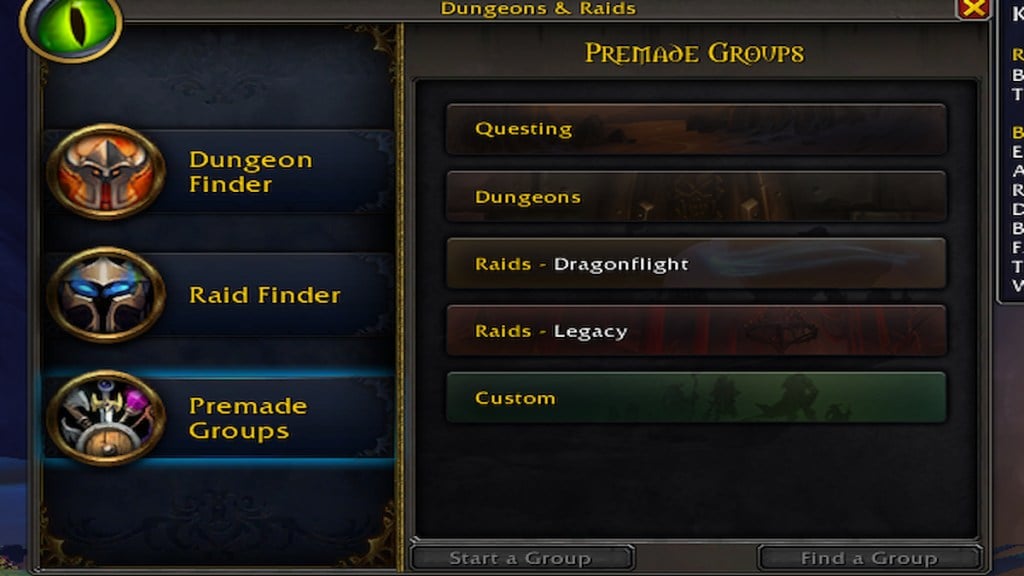
PvE content is player vs. environment or a better way to put it, it’s the content that involves playing against AI enemies and playing against the world. The modes will reward EXP and loot, which will help you level up and become stronger, respectively. This involves several activities, such as:
- Quests – tasks given by NPCs that involve completing objectives, such as defeating several enemies, finding an item, or interacting with objects, that yield gold, EXP, and gear. Denoted by the Yellow exclamation point (!) sign over an NPC’s head.
- Dungeons – small instances that involve powerful enemies and bosses that a group of five players (1 Tank, 3 DPS, 1 Healer) explore and conquer together to complete quests and get powerful loot. This includes Normal, Heroic, and Mythic, with each difficulty being more challenging than the last.
- Raid – Involves groups of typically 10-30 players taking on large instances with difficult boss battles, involving multiple mechanics, strategies, and planning to overcome to get some of the game’s most sought-after loot.
- Daily/Weekly Quests – Quests that can be repeated every day or week, usually earning you currency or items needed for certain endgame features, such as upgrading gear, or new loot and progress for other quests.
PvP Content
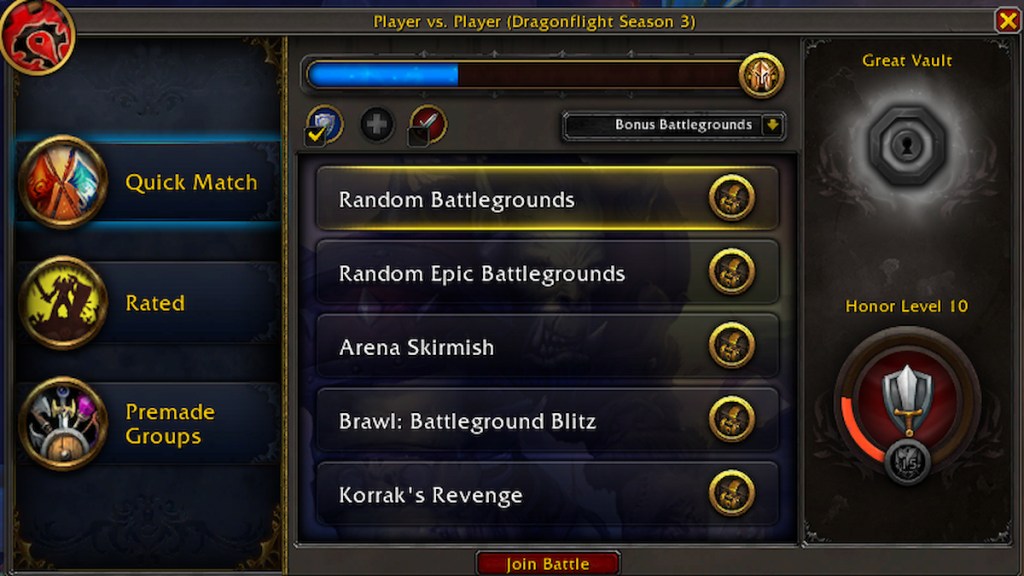
PvP content involves activities against other players, typically of the opposing faction. Along with earning unique currencies, you can also earn EXP from these modes, though it’s not the most viable option if you want to level up quickly.
There are both unranked and ranked versions of most of these modes, with ranked being for players who focus on PvP in their endgame. Using Honor and Conquest, the two currencies you earn from these modes, you can get new gear designed more for PvP use and use Marks of Honor to purchase cosmetics for your armor.
This kind of content has the following modes and activities:
- Battleground – Large-scale battles of up to 40 vs 40 that involve capturing objectives, gaining resources, and battling other players across large battlefields. There are normal and epic options, with epic being the larger scale mode and maps.
- Arena – Small teams of up to three players battle against each other in combat, relying on teamwork and clever gameplay to win. This has a skirmish option for casual players and a ranked mode with solo, 2v2, and 3v3 queue options.
- World PvP – This involves activities found in the world, such as daily quests or engaging with other players with War Mode on, allowing you to battle enemy faction players with this mode on.
These are worthwhile and fun ways to play WoW in leveling and endgame, so try dabbling in a few of them and see which ones you enjoy. Typically, you can enjoy a bit of it all, but it’s not uncommon for players to focus on one particular area, such as doing Raids or being an avid PvP player.
Related: Top 10 Best WoW Titles
Along with these, players enjoy a few more casual activities that you can dabble in. These include transmog hunting, which is finding and collecting appearances to make your gear look cool. Pet Battles is a Pokemon-like mode where you and other players can have their pets do battle. Or, you can achievement hunt, as the game has plenty of challenges for you to complete to show off your dedication.
Whatever you choose, have fun with it and do what you enjoy; it makes the game much more fun.
Talents
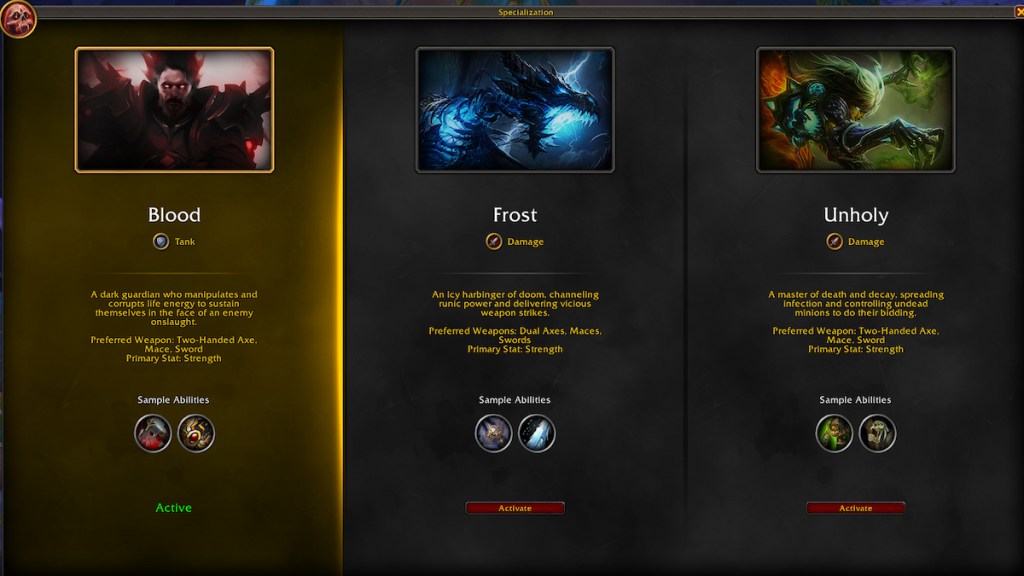
Once your character reaches level 10, you begin to get into the nitty gritty of your class and unlock Talents. This system is where you refine your class playstyle and abilities and craft them into your desired character.
You will unlock two talent trees; the first is your class tree. This is focused on your utility and general class abilities and passives. These are the baseline and core parts of your class that you will have regardless, and they are spells and abilities you will need regardless of content.
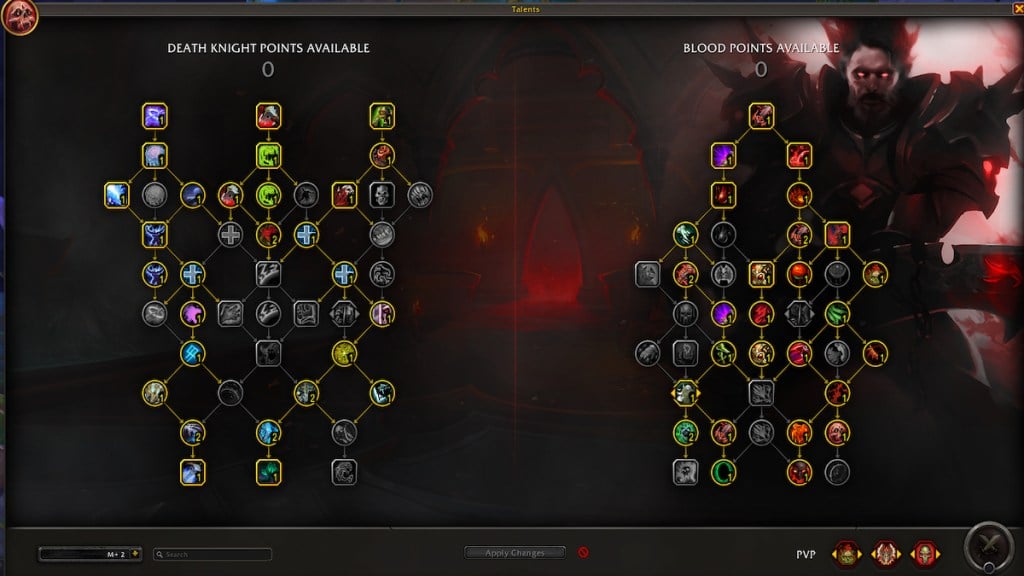
The next is Specialization, a more focused tree dedicated to your Specialization of choice. This is where you will have your main abilities for the role you choose to play. For example, Blood is the tank specialization for Death Knights, and their tree contains all the key abilities, passives, and spells needed to craft them into a role.
Both of these trees can be altered at any time out of combat, and you can save loadouts if you want to try a new one or have different ones for different content, such as dungeons and raiding. You can also change your Specialization to try different roles or ways of playing your class at no cost, so you have complete freedom in how you want to play. You unlock a point in each tree alternately from level 10 up to level 70 for a total of 31 class points and 30 specialization points,
Professions
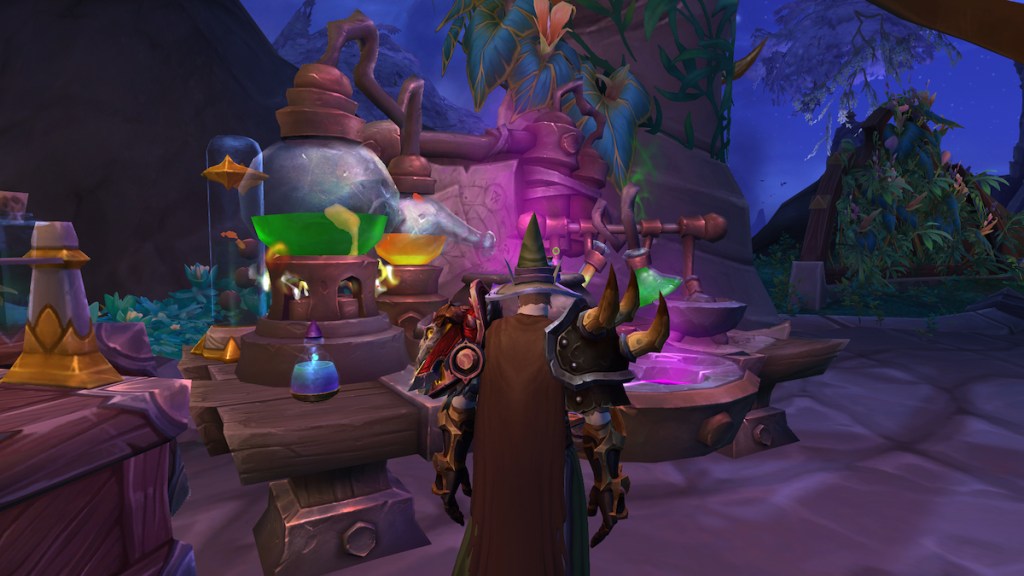
Along with your adventures of slaying monsters and exploring dungeons, you’ll also be able to gather and craft items for potions, armor, and tools using Professions. These are trade-oriented skills that players use to earn money and create helpful items for themselves and other players.
Players can choose two professions to learn, as well as a few secondary professions that don’t count towards the two, these being fishing and cooking. As you level these up, you’ll be able to craft new items and learn new recipes you find to widen your options and abilities.
There are multiple options players can choose from, which include:
- Alchemy
- Blacksmithing
- Enchanting
- Engineering
- Herbalism
- Inscription
- Jewelcrafting
- Leatherworking
- Mining
- Skinning
- Tailoring
While you can choose any two professions, certain ones work well with others and are often an excellent pair to choose depending on what you want out of them, whether that’s maximizing money or being able to make your own gear.
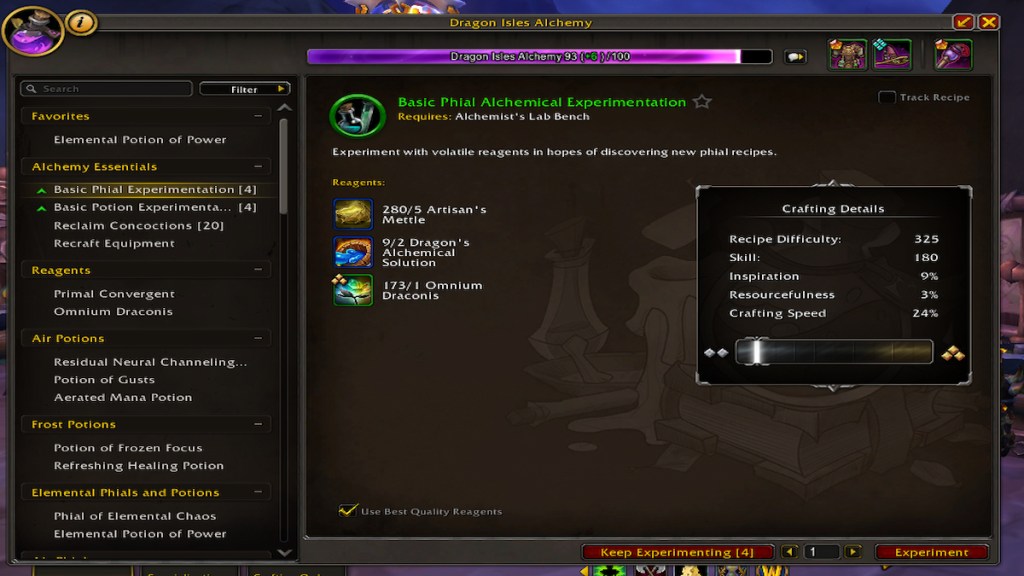
For example, herbalism and alchemy go hand in hand, and you use the resources your find from herbalism to make potions and phials to provide passive effects and utility to you and other players.
As of the most recent expansion, Dragonflight, professions got a significant overhaul and now have their own progression trees that can improve your yields and specific aspects of the profession. Additionally, your crafting now has quality levels, with higher quality being better items, secondary stats that affect your effectiveness, Finishing Reagants that can fine-tune your crafting, and crafting orders that allow you to levy your services to other players via an auction house-like system.
Related: Will World of Warcraft Come to Xbox Consoles?
Each expansion has its own set of profession recipes to learn, each with its own level. However, our advice is to ignore professions during your leveling experience until you reach Dragonflight, as all the previous expansion’s crafting is outdated and irrelevant. Plus, they do not have the depth or quality of life additions that Dragonflight has, so it’s better to wait until the most current expansion and go from there.
Extra Adventuring Tips
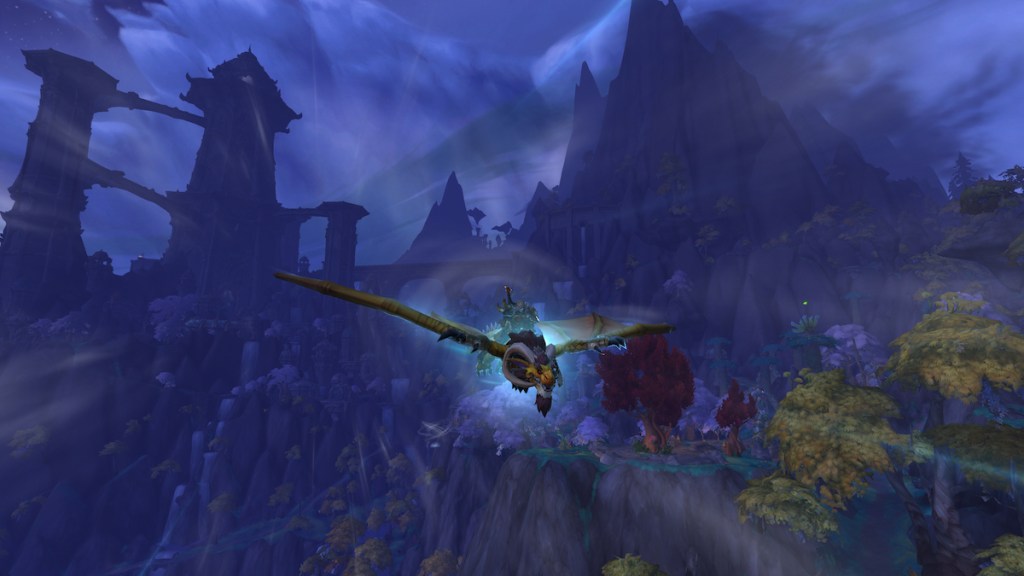
Ok, so we have imparted quite a bit of information. You know a bit about classes, races, the content, leveling, up, and all the extra bits you’ll need while playing the game.
To ensure you have the best start (or return) to World of Warcraft, we will finish with a few tips that will help make your expereince a little bit better and allow you to get the most out of the game.
Join a Guild
Joining a guild can be a great choice, as you’ll find like-minded players to enjoy the game’s content with and make friends. It can make the whole experience better, and playing with friends is always a plus.
Guilds also have some perks, like a shared bank and a few passive effects that can help you on your journey. You can always ask about joining a guild or use the Guild Finder in-game to look for one that is the right fit and apply.
Get a Mount
Mounts allow you to travel the world faster and make the whole experience more accessible, even more so when you get flying mounts. You can learn to ride mounts from level 10, and then at 20, you get a speed increase. At 30, you will learn to fly, and at 40, you get another significant speed boost for flying mounts.
Related: World of Warcraft: 10 Best UI Addons
Once you can, learn and upgrade your mount skill; trust me, it’s worth it, and the quicker you grab it, the better.
Learn Your Class And Rotations
To play the game to your best and be confident in content, you’ll want to learn how your class works. This involves reading your abilities’ tooltips, planning out your talents, and learning how you should be using your move set.
There are tons of videos and guides online, with WoWhead and Icy Veins being two good resources with plenty of information on this and other advice for your class or role. Take the time to read up and understand your class, and you will be a better player for it, for you and other players.


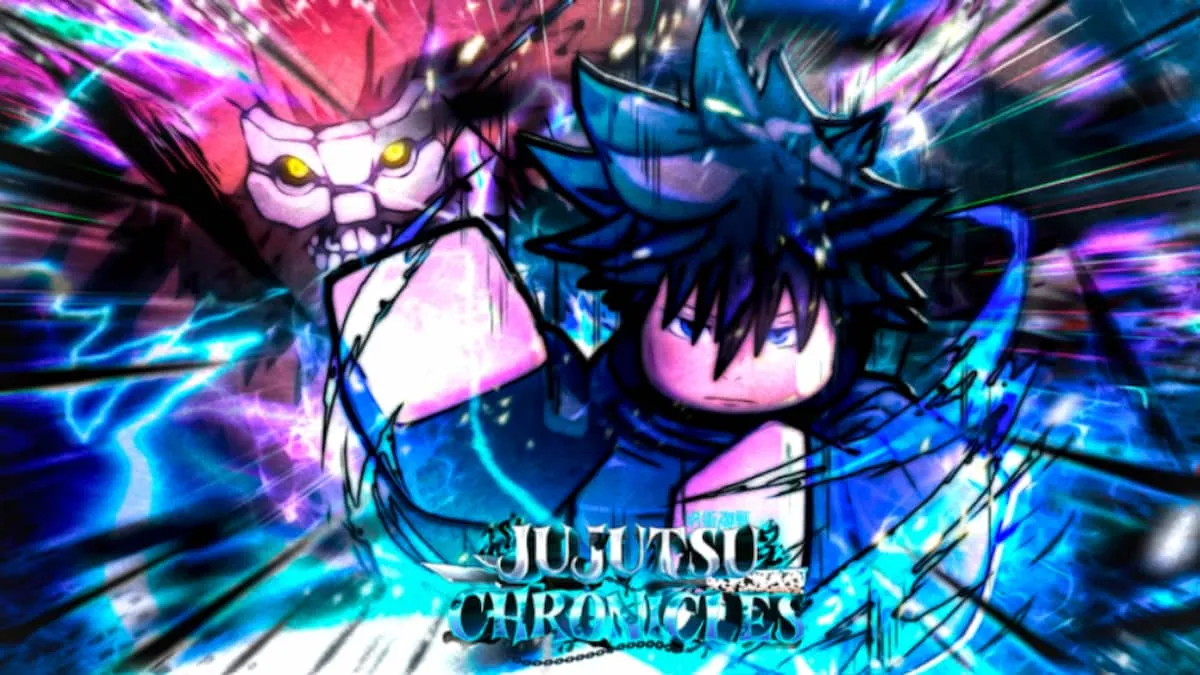
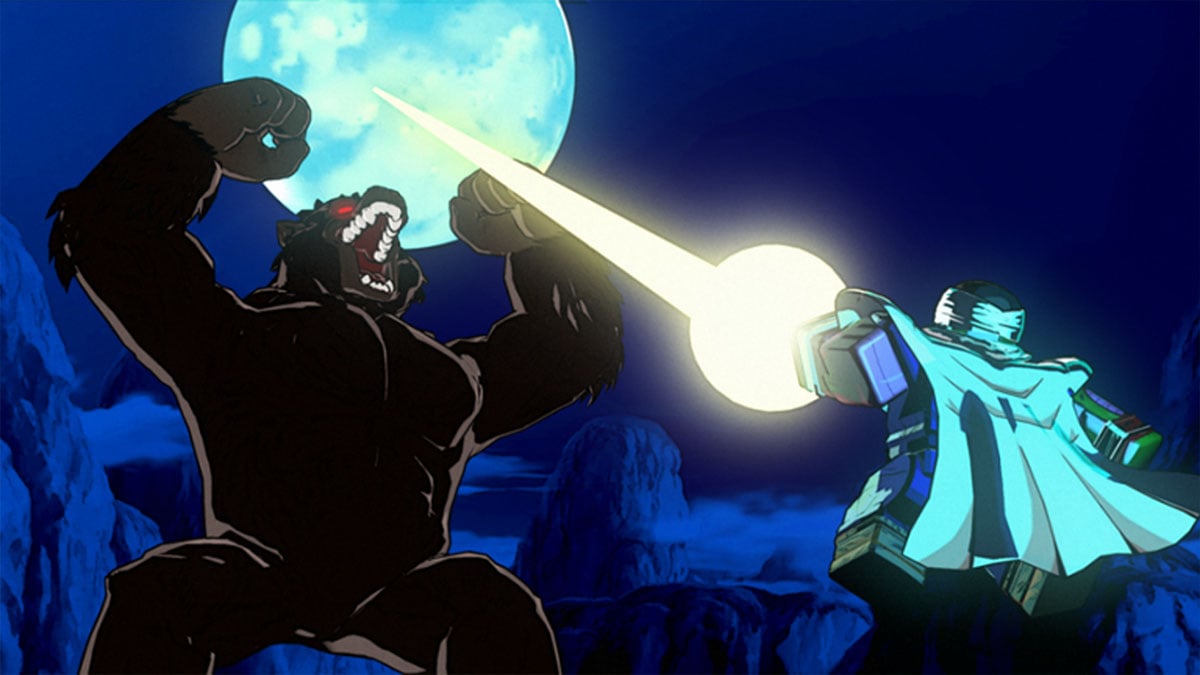
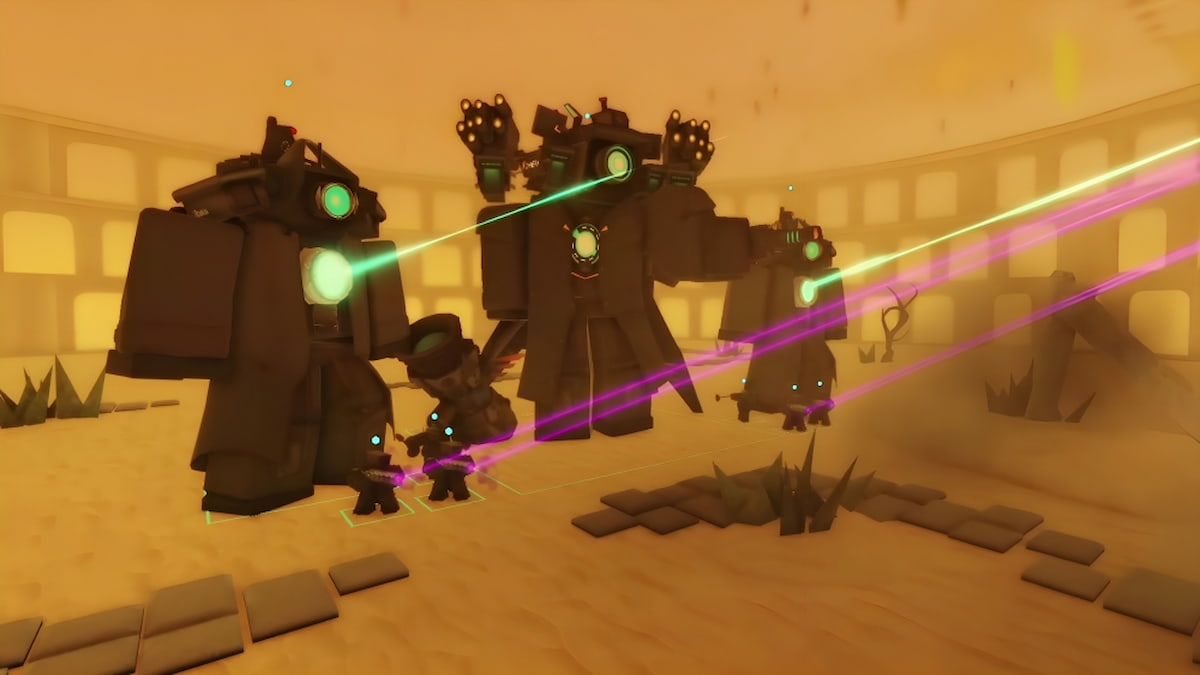
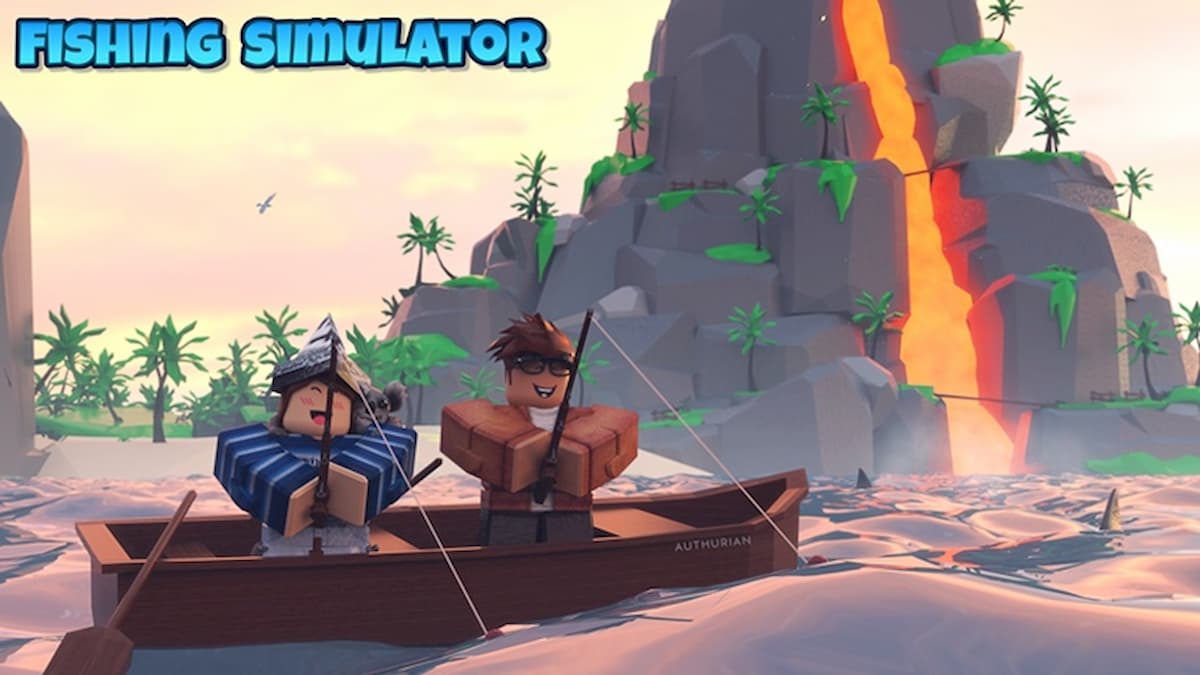
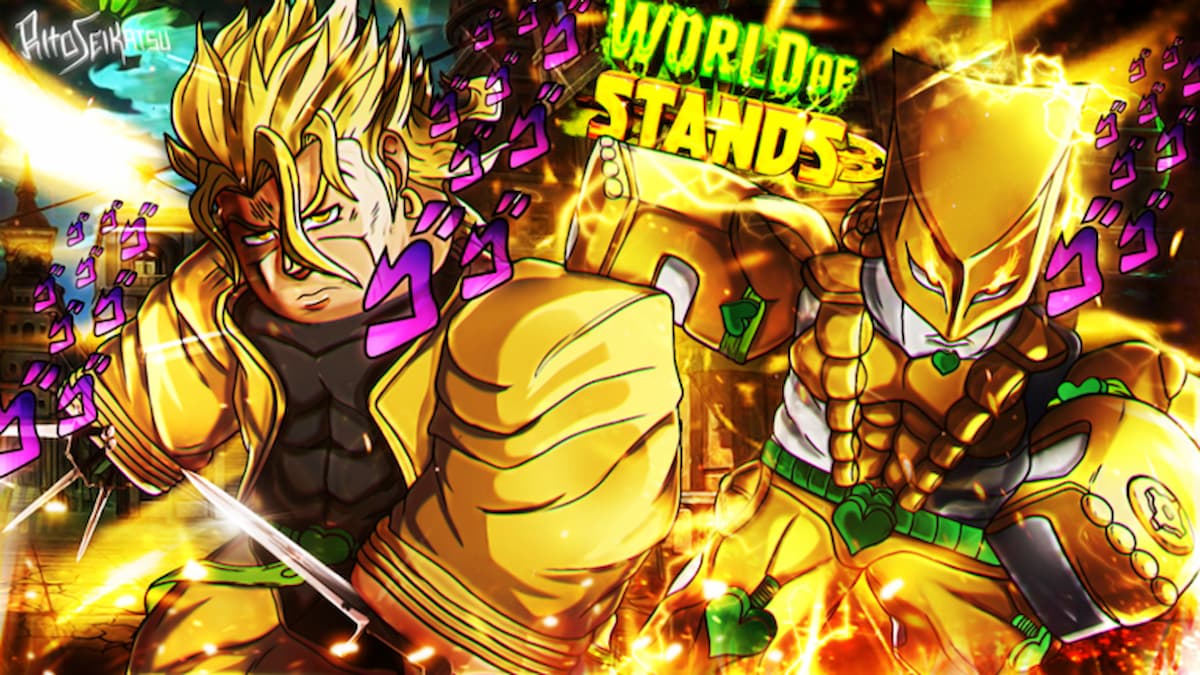
Published: Nov 24, 2023 09:53 pm